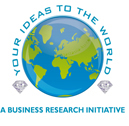
CONFERENCE ANNOUNCEMENT
Global Business Research Journals (GBRJ) & Duy Tan University, Vietnam
Proudly Present
SECOND ASIA-PACIFIC CONFERENCE ON GLOBAL BUSINESS,
ECONOMICS, FINANCE AND SOCIAL SCIENCES
AP15VIETNAM CONFERENCE, 10-12th July 2015

Global Business Research Journals
Online International (Double-Blind Peer Reviewed) Monthly Journals
CONFERENCE ANNOUNCEMENT
Call for Papers!
Second Asia-Pacific Conference on Global Business, Economics, Finance and Social Sciences
AP15VIETNAM CONFERENCE
Theme: Economic Integration of the Developing Countries – Opportunities and Challenges!
July 10–12th, 2015
Venue: Duy Tan University, 7/25 Quang Trung St., Hai Chau District,
Danang City, Vietnam.
ISBN - 978-1-63415-833-6
INVITED LECTURES
Invited Lecture 1
Date: 10th July 2015 13.30 pm – 14.00 pm
Topic: "Emerging Trends and Established Practices in the Commercialization of Online News Media!"
Dr. Linda-Jean Kenix
University of Canterbury,
Christchurch, New Zealand.
PROFILE
Invited Lecture 2
Date: 11th July 2015 10.15 am – 10.45 am
Topic: "Writing Award-Winning Research Papers" -From an Editor’s Perspective!
Dr. Elango Rengasamy
The British University in Dubai,Dubai, UAE.
PROFILE
Invited Lecture 3
Date: 11th July 2015 10.45 am – 11.15 am
Topic: " Knowledge Management and Economic Growth "
Dr. Bob Barrett
Professor, School of Business,
American Public University
USA.
PROFILE


Dear & Esteemed Colleagues,
Warm greetings!
We are extremely delighted to inform you that the Second Asia Pacific Conference on Global Business, Economics, Finance and Social Sciences is being jointly organized by the prestigious Duy Tan University, Vietnam and the Global Business Research Journals (GBRJ) from July 10-12, 2015 at the Duy Tan University Campus, Vietnam.
You are cordially invited to submit your research manuscripts/case studies in all areas of business. In addition to paper presentations and discussions, the conference will include special invited lectures on contemporary topics in business.
Important Dates!
Abstract / Full Paper Submission Deadline |
: |
|
Last Date for Registration |
: |
|
Conference Dates |
: |
10-12 July 2015. (Friday, Saturday and Sunday) |
Conference Objectives!
Economic Integration of the Developing Countries – The need! (Opportunities and Challenges)
In this world of competition, removal of barriers to trade among the developing countries would greatly help them achieve competitive advantage and synergy. This is necessary because competition has brought about volatility in pricing and demand for goods and services in certain sectors. Duty free and quota free trade among the developing countries would not only increase the quantum of trade but undoubtedly increase the spread of technology, efficiency, inclusion of higher percentage of people in productive activities, among others. All these positive developments would presumably ensure overall growth and economic prosperity of the countries involved in multilateral trade and commerce. To start with, developing countries need to think about increasing the preferential trade agreements, free trade and customs union among them. As they progress, they can think of other forms of integrations such as customs union and currency union to complete the process of economic integration. Keeping the lessons learnt from the European Union, Developing or Third world economies have to clearly identify the risks involved in this initiative and make bonafide attempts to minimize them. It is needless to emphasize that the economic benefits of integration would understandably bring peace and prosperity to the people living in the region.
Greater Challenges and Opportunities Ahead!
The degree of convergence among the countries involved would further stimulate the economic activities resulting in generation of massive employment opportunities for people. Of course, achieving this mammoth task has many challenges. For instance, the economic policies and focus of the countries involved, wide disparities in the economic indicators such as inflation rate, interest rate structure, fiscal policy, differences in penetration of technology, communication etc., of the developing countries might pose hurdles in this process. However, these minor impediments have to be removed carefully taking into account the larger interests of the population and accelerate the wheels of growth.
One of the major weaknesses of the developing economies is that they are agriculture-based. Once the barriers to growth are identified, the drivers of economic growth can be stimulated and they can be made manufacturing based economies which is an essential pre-requisite for employment generation. These steps can be further supported by movement of improved technology, innovation, capital and technically trained manpower in a more coordinated manner across the region.
In this globalized era, every economy requires growth. But, growth is not possible in isolation as economic integration is the only way in which peace and prosperity can be ensured for a sustainable development and growth.
Against this backdrop, the Second Asia-Pacific Conference on Global Business, Economics, Finance and Social Sciences (AP15Vietnam Conference) is being organized in the vibrant coastal City of Danang, Vietnam. This conference provides a platform to academicians, scholars, researchers and industry practitioners to share their insights, views and research findings with the fellow academicians/industry experts from different parts of the World.
Specific objectives!
This conference makes an attempt to:a) Provide an ideal platform for academicians/scholars, practitioners and researchers to share their research findings, insights on sharing the benefits of an integrated Third World;
b) Initiate appropriate steps to integrate the major components of integrating the Third World/Developing countries so as to achieve the much-needed synergy among countries;
c) Identify such of those areas that would generate employment and entrepreneurial opportunities among the Third World countries so that they become more powerful in the global market place; and
d) Suggest appropriate methods to provide sustained growth and prosperity for the population living in the Third World.







